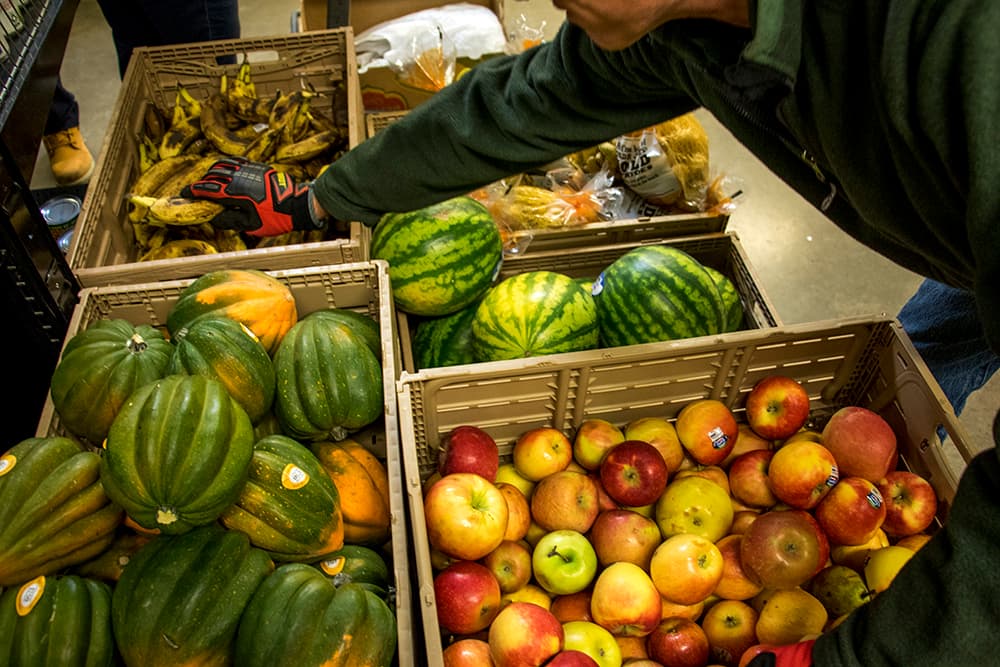Another citizen-led ballot initiative in Denver is seeking to increase sales taxes by a smidge, this time to provide healthier food options for the kids in the city.
The Healthy Food For Denver Kids campaign initiative (officially Initiated Ordinance 302) is one of nine ballot measures Denver residents will vote on during November’s election. Campaign chairman Blake Angelo said it's been a grassroots effort led by volunteers who want a .08 percent sales tax increase to fund food education programs — less than a penny for a $10 purchase.
“If you spend $100, you would provide 8 cents to this program, and that tax does exclude fresh food,” Angelo said.
Supporters are hoping this will raise $11.2 million in its first year. The tax increase would expire after 10 years.
“We like to think, with a decade of investment in Denver kids, we are going to make a multigenerational impact, both for them and their families now but also the families they build as they get older,” Angelo said.
The campaign submitted petitions last month. They were notified by the city last week that they had submitted 5,451 valid signatures to the Denver Clerk and Recorder. They needed to collect at least 4,700 valid signatures to qualify.
Supporters held a press conference at Academy 360 in Montbello on Monday to recognize the measure’s addition to the fall ballot. Among the supporters is Denver City Councilwoman-at-large Debbie Ortega.
"Denver has experienced many changes, but unfortunately not everyone has prospered because wages have not kept up with the cost of living, especially for hard-working people at the lower end of the pay scale; I strongly support the passage of the Healthy Food For Denver Kids Initiative to assist these struggling families,” Ortega said in a release.
What would this tax increase pay for?
Angelo said the funding will provide healthy meals and food education for children by allocating the money to local organizations and public sites, including schools. He said they don’t have a list of organizations they want to partner with since each will have to apply annually to get some of the money raised.
The programs the funding will pay for include cooking, gardening and nutrition programs, which Angelo said will give kids “both the skills and the desire to eat healthy food.”
“It’s one thing to have someone give you broccoli if you’ve never seen it before, but it’s another when you grew it and cooked it and are excited to share it with others,” Angelo said.
Turner Wyatt, Executive Director of Denver Food Rescue, said in a release after Monday's press conference that he wants to live in a city "where every kid has enough healthy food to thrive and succeed."
“The Healthy Food for Denver Kids initiative gives all Denver voters the opportunity to say that our kids deserve better," Wyatt said in the release. "The solution to this problem sits at the ballot box this November and together we can invest in our kids and easily solve it”
“It really is crazy in a city with as much prosperity on the surface, to have so many kids without food,” Angelo said.
Supporters believe the measure addresses some of the concerns outlined in the Denver Food Action Plan released in June. The plan calls for a focus on neighborhoods deemed underserved or low-income.
A note from Mayor Michael Hancock included in the plan said, "the opportunities and the challenges presented by our food system, including access to affordable healthy food, are not equitably distributed across our city."
As part of the ordinance, a public commission including five members from the city and eight from the public would be created to oversee the program. There would be limitations on where the money can go.
“The ideas is there is already a large number of organizations helping kids with Denver,” Angelo said, adding that this program would ensure public dollars go directly toward “expanding those programs” as efficiently as possible.
If it's passed this November, voters will need to decide whether or not to keep it after expires after 10 years.











